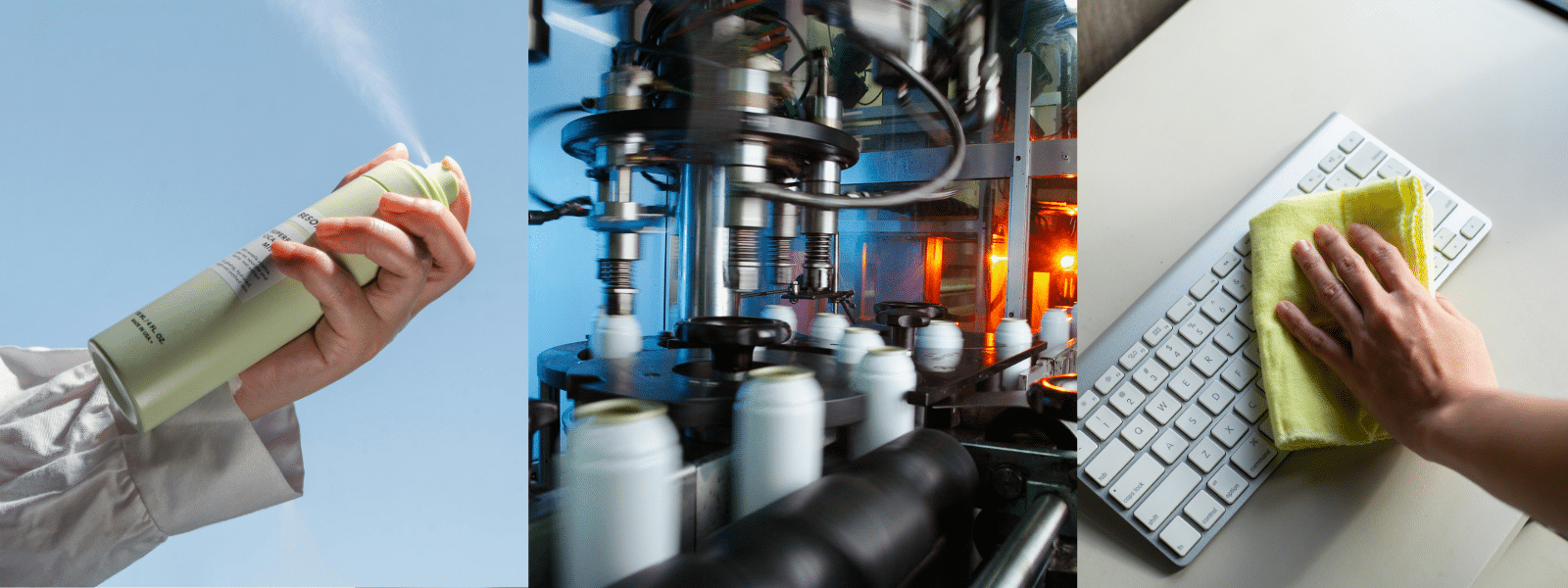A solvent is any substance capable of dissolving another substance to form a solution and may be non flammable or flammable in nature. On our planet, water is the most common form of solvent due to its ability to dissolve numerous substances. It is also capable of emulsifying other substances if combined with surfactants. Common flammable solvents include: acetone, alcohol, benzene, toluene and xylene.
The degree of flammability is determined by their volatility, which is the amount of time it takes for them to evaporate. Organic, carbon-based solvents are highly volatile; however, chlorinated solvents are the exception, as they have little to no flash point. The flash point is the lowest possible temperature at which the vapor is capable of igniting under certain conditions.
As opposed to petroleum-based organic solvents, chlorinated options are a minimal fire hazard. They are often used for surface cleaning and product formulations due to being extremely ignition resistant. The Environmental Protection Agency (EPA) has listed them as an acceptable alternative for ozone depleting substances in regards to this quality.
Difference Between Flammable and Non Flammable Solvents
Flammable solvents are able to burn or ignite under certain conditions and create a significant risk of fire or combustion. The two most important characteristics for determining flammability are flash point and vapor pressure. Flash point is how easily the vapor from the substance ignites when released into the atmosphere by evaporation. Lower flash points are an indication of increased flammability while higher flash points are less dangerous. Any substance with a flash point below 100 degrees Fahrenheit is considered to be a potential workplace hazard.
Vapor pressure is directly related to temperature and is a measurement of how the liquids vapor is concentrated in the surrounding atmosphere during evaporation. Solvents with higher vapor pressures naturally have a lower flash point making it important to understand these measurements. A non flammable solvent will have a high flash point and a low vapor pressure.
Careful Selection is Imperative
Regulatory agencies use a rating system ranging from 0 to 4 to assess the danger of ignition. For example, water has a rating of zero because it cannot burn. Propane is rated as a 4 since it rapidly vaporizes under normal pressure and temperatures. Diesel fuel is rated as a 2 as it must be moderately heated to high ambient temperatures in order to ignite. It is important to understand these characteristics as you evaluate solvents. A solvent with a high flash point and low vapor pressure is the best choice when it is a viable option for accomplishing the required cleaning or degreasing.
Non flammable solvents are safer to use, but still have specific health risks when inhaled or handled improperly. At Ecolink we know how important it is to get the right formula while maintaining a minimal impact on the environment and worker health. If current solvent options are not providing what you need or a less harmful substitute is desired, we are able to formulate a solvent to deliver the right qualities for better results. Contact us today to learn more about current options and how we can tailor a solution to meet your needs.















